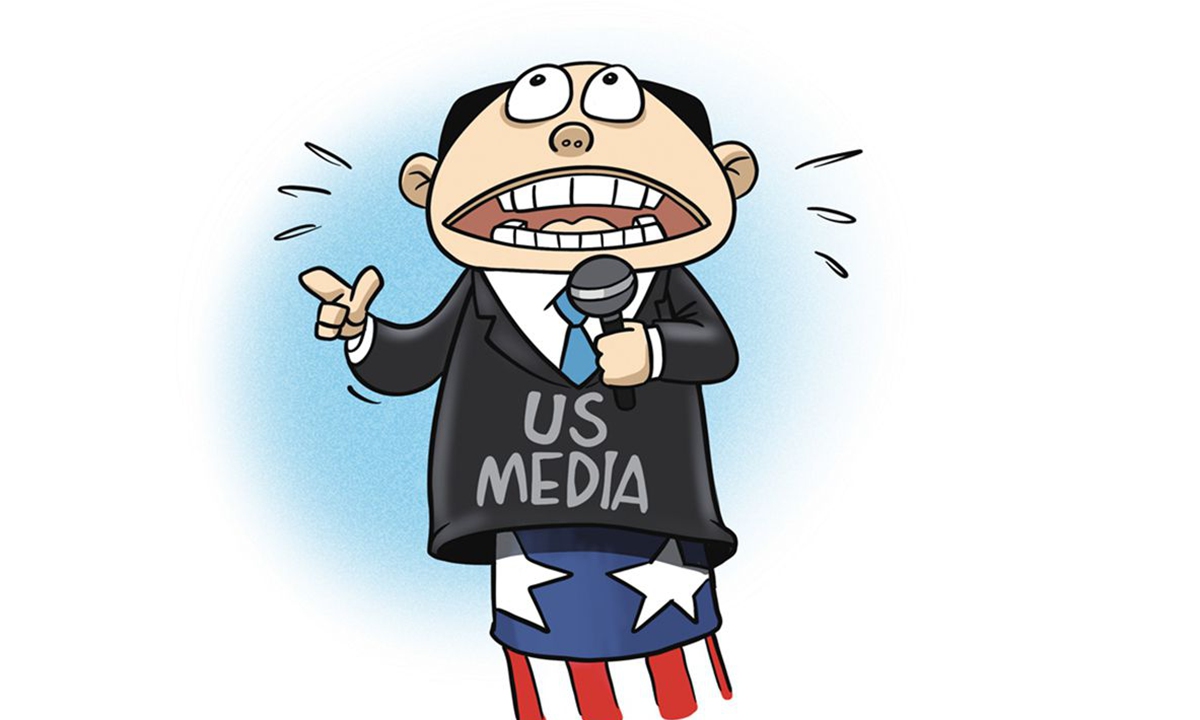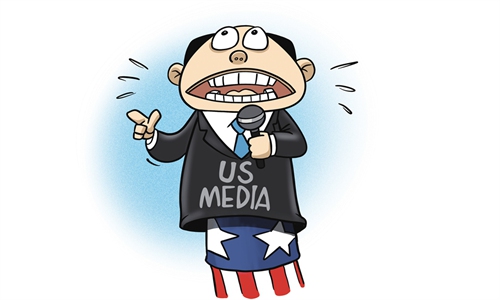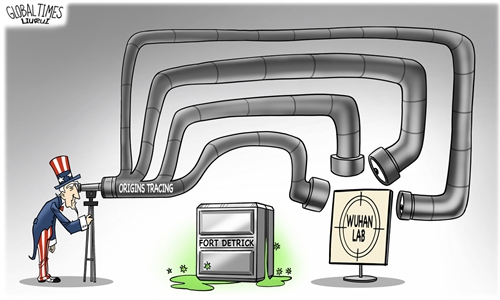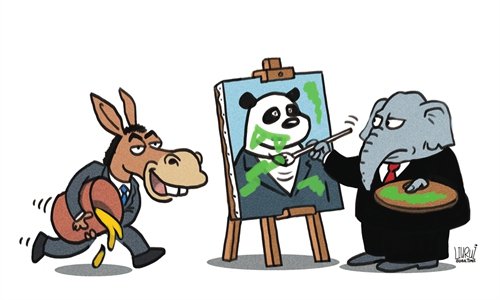
US media Illustration: Liu Rui/GT
Mainstream US media outlets seem to be like ants on a hot pan as they watch China's growing influence in social media platforms like Facebook, Twitter and YouTube. So what do they do about it? An editorial from the Washington Post said that China is taking advantage of online influencers who are "dupes of a regime that tricks them with carefully curated glimpses into Chinese life" to spread propaganda to the rest of the world. Just one day ago, the New York Times ran a lengthy article to disclose "how China manipulates Facebook and Twitter." Moreover, an earlier NYT report tried to prove the Chinese state behind the camera of those influencers who speak positive things about China.Obviously, when the Washington Post and NYT hyped China's social media ideological warfare, they are proving that they themselves are the ideological and propaganda tools of the US government. When a true image of China is presented and triggers attention, these ideological tools begin to feel unease and rashly launch an offensive.
These offensives of the mainstream US media are in coordination with the overall US confrontational strategy toward China, which spans from hard fields such as politics, military and economy to soft fields such as discourse power and influence.
For a long time, the anti-China "iron curtain" established by the US media has dominated international opinion. Whether it is on Twitter or Facebook, anti-China voices had been prevailing. When the stereotypes about China shaped by the US media are so deep-rooted in people's minds, any opinion that refutes them or presents a true picture of China is labeled by the US media as "state-backed propaganda," while these media never reflect upon their own narrow and prejudiced knowledge about China.
The high alert toward and the relentless smear of China's influence on social networks have exposed the McCarthyism within the mainstream US media. Their logic is: One can only say what they would like to hear and what fits their stance; if one wants to say something otherwise, they will just silence it.
But such logic exposes a US fallacy. The US has always claimed to be the guard of "freedom of speech." On social media, the Republicans and the Democrats would fall in endless debates, and even such debates help little in meaningful policymaking or social development, and sometimes turn into bottomless personal attacks. This is called "freedom of speech." But the wariness and attacks on China's influence on social media make the US image as the guard of "freedom of speech" break apart. After all, the US-style freedom of speech is not limitless - it must serve US national interests and ideology.
When Facebook and Twitter remove the so-called state-backed accounts linked to Chinese influence, the US mainstream media displayed only indifference and did not mention even a word about "freedom of speech." These media criticize China's "censorship" on one hand but practice censorship in an imposing manner on the other. In the US, what matters is political stance, not loyalty to the so-called values.
A deeper look into the US media's attacks against China enables one to understand the fundamental reason - the fear of the decline of the US' own influence and paranoia toward and inadaptability of China's growing influence, Zhang Tengjun, deputy director of the Department for Asia-Pacific Studies at the China Institute of International Studies, told the Global Times.
Is the US too weak to bear the truth of China? Fu Ying, a veteran Chinese diplomat, challenged US suppression of Huawei by asking US House Speaker Nancy Pelosi at last year's Munich Security Conference, "Do you really think the democratic system is so fragile it could be threatened by this single high-tech company, Huawei?"
Similarly, is the US influence so fragile it could be threatened by the active social media influencers who reveal the true story of China?




